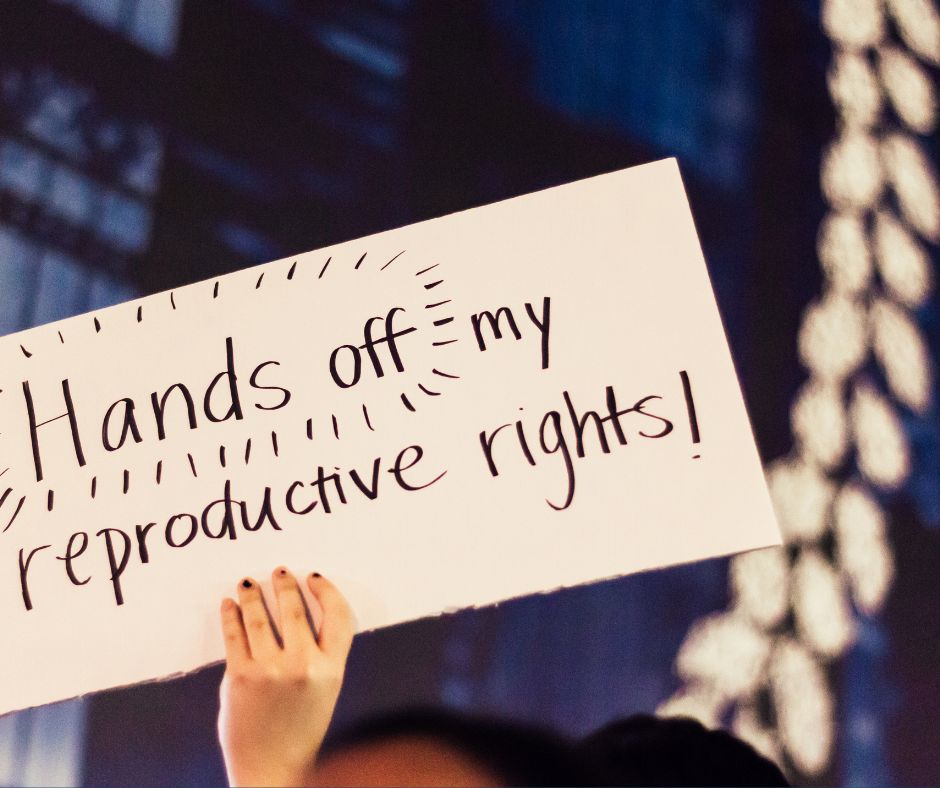If we have learned anything this past week, we can no longer trust the Supreme Court to protect the right to choose. 2021 is the worst legislative year ever for reproductive rights. Hundreds of bills have been introduced in state legislatures, and close to 100 have gone into effect.
Beyond the Supreme Court, the federal government has never been very good at protecting access to abortion. The Hyde Amendment, passed in 1977 in response to Roe v Wade prevents federal funding from being used to pay for abortions except in cases of life endangerment, rape, or incest. This would happen under Title X, which provides funding for reproductive health services for those who cannot afford them otherwise. Over 4 million people rely on Title X for services they need. Generally speaking, the government does not fund abortions, although money does go to clinics that provide reproductive services.
In 2019, Trump instituted the ‘gag rule’ preventing any clinic or doctor that received federal Title X money from even mentioning abortion. This was devastating to clinics. In response, several states stood up to provide this funding from their own budgets. New Jersey, Massachusetts, Hawaii, Connecticut, and Pennsylvania gave money to Planned Parenthood. Hawaii, Illinois, Maryland, Vermont, Oregon, Washington, Massachusetts, California, and New York partially made up the lost funds from their state budgets. But, of course, many states did not.
In 2019, Texas passed a law prohibiting state and local governments from partnering with agencies that provide abortions, even they contracted for services not related to abortion. As a result, states like Texas cut their family planning budget significantly to reduce funding for groups like Planned Parenthood. They also kicked Planned Parenthood out of their Medicaid program.
Local governments at the city level often work with abortion providers that provide general reproductive services to fight public health crises, like Zika, HIV, and STD outbreaks. They also often have “sweetheart rent deals” where clinics can pay significantly less for rent, which helps them keep afloat and providing key health services.
In 2019 the Austin city council approved a budget that gave 150,000 to help local women with abortion access costs like childcare and transportation. In 2017, St. Louis enacted an abortion “sanctuary city” law, prohibiting employment and housing discrimination based on reproductive decisions. The Atlanta City Council passed a resolution declaring their opposition to Georgia’s “heartbeat law.” New York dedicated 250,000 to a fund that helps women from out of state obtain abortions.
On the other end of the spectrum, at least 30 localities in 6 states (Arkansas, Indiana, New Mexico, New York, Ohio, and Texas) have passed municipal abortion bans. Lubbock, Texas, became the first city with an abortion provider to pass this back in May. The ordinance declared Lubbock as a “sanctuary city for the unborn.” It was on the ballot on May 1st.
It is imperative that we elect local officials who support women’s reproductive rights.
Rideshare2Vote believes in the power of local elections. That’s why we run even in ‘off years,’ when most municipal elections are held. We are running in 6 states this November, including the Virginia gubernatorial election and several mayoral elections. These elections have the power to determine if a woman’s right to choose will be protected.
by Betsy Zalinski

